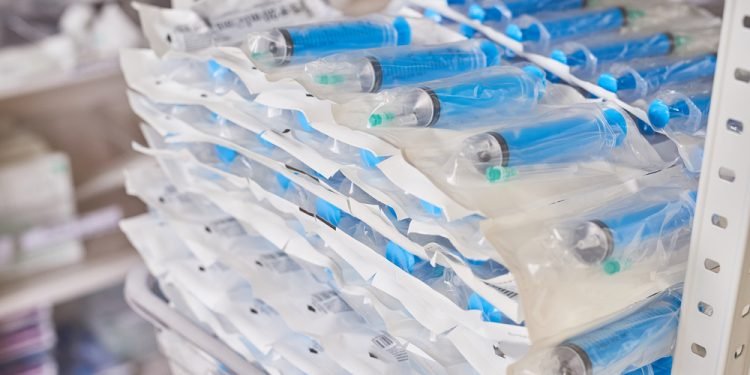Brussels (Brussels Morning) EU leaders meeting by videoconference on Thursday are expected to come to terms with the emergence of new variants of the virus and their spread across the union.
The Commission wants to drastically ramp up the testing capacity for detecting variations of the COVID-19 strain of the corona virus and sets out to do so by expanding the use of rapid antigen tests.
The use of the rapid test kits has been called into question as results have proved unreliable. Increased lab capacity will be needed for genome sequencing as the Commission wants 5-10% of the positive test results to be determined in terms of the variations they present.
“We have reached a point where the end of the pandemic is in sight, though not in reach. Substantial rises in infections leave no room for complacency”, Commission Vice-President Margaritis Schinas said Tuesday.
The Commission met on Tuesday to prepare for the EU leaders’ meeting this week. There is concern among EU countries’ government that the common vaccine procurement is not working, holding up the roll-out of national vaccination programmes.
Now the Commissioners urge the respective health authorities to use up the stocks of vaccine available and are asking for more to be produced.
Still, there were no further disclosures of information regarding the purchase contracts that the Commission has been mandated to negotiate with the pharmaceutical companies. Commissioner Schinas refused any information with reference to trade secrets.
“The only approach that works is the EU system of collective buying of vaccines”, Schinas stated, while admitting that the next few weeks represent a logistical challenge.
Uncertainty over vaccination certificates
Immunisation against COVID-19 is on offer for the elderly and healthcare professionals; according to the Commission, up to 80 percent of both groups should be able to receive a dose of the approved vaccines by March.
According to EU Health Commissioner Stella Kyriakides, plans on approving the vaccine by Johnson&Johnson for use in the EU market advance. So far, only the BioNTech/Pfizer and Moderna vaccines have been authorised with the Pharma giants promising to deliver enough doses for 380 million Europeans. The roll-out of the national vaccination programmes raises the issue of mutual recognition of vaccine certificates.
“We will discuss the suitability of a common approach to certification, as well as under which circumstances certificates could be used”, Schinas said.
So far, certain countries, like Denmark has aimed at issuing vaccine passports. By referring to the EU’s internal market, the Commission insists on a common understanding, both regarding the health records to be kept and the reliability of certificates for use in other countries.
The decisions are left to the EU leaders’ virtual summit on Thursday. So far, the Commission would not go as far as conditioning travel against the future certificates of vaccination, refusing to refer to the document as a passport.
“The certificates are a useful tool to prove that vaccinations have take place. It is imaginable that this opens up avenues for other use, including facilitating travel”, Schinas stated.
“But only once there are clear conditions for potential uses. We are not yet at the stage of determining the future use of the vaccine certificate”, he added.
According to Health Commissioner Kyriakides, any certificates are only for use in healthcare.
No further blanket bans on travel
Non-essential travel is strongly discouraged, but flights should not be suspended unilaterally. Instead, any restrictions should be proportionate and based on epidemiological situation.
“Blanket travel bans do not provide any added value, as in this situation, the virus is everywhere. On the contrary, we continue to insist on regulating travel conditions and the use of protective equipment”, Schinas said.
However, testing programmes for travellers entering from areas with a higher incidence of new variants of COVID-19 will still be maintained, as supported by EU policies. Measures that reduce the risk of transmission linked to the means of travel, such as hygiene and distancing will continue to apply on planes, trains and in terminals buildings.




